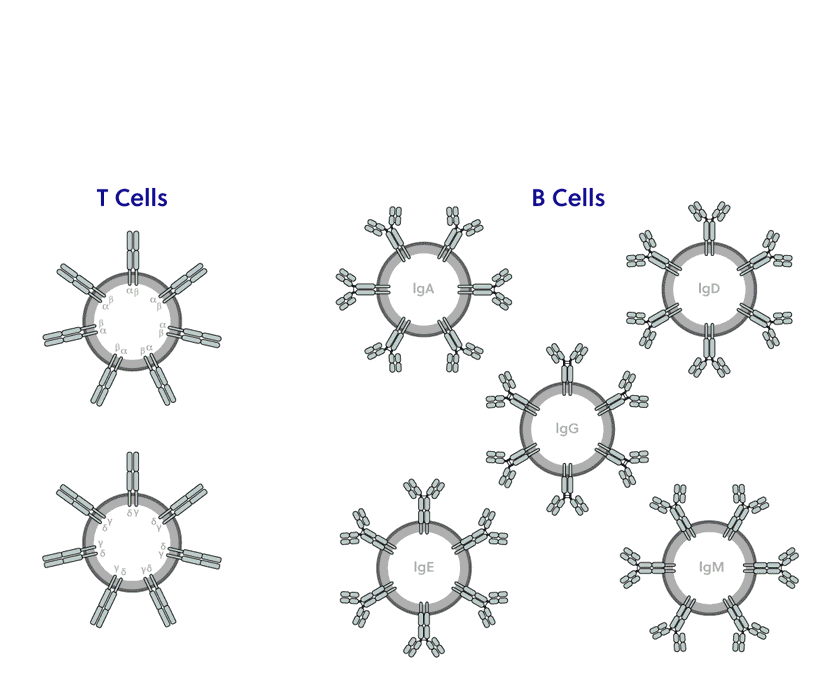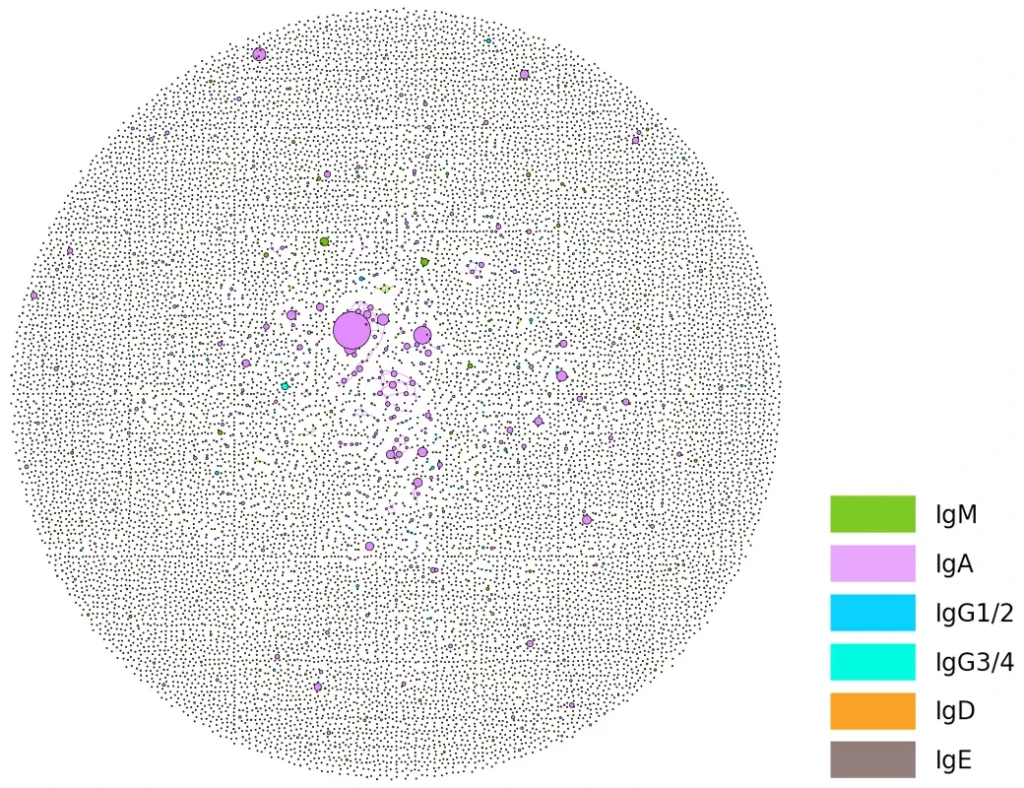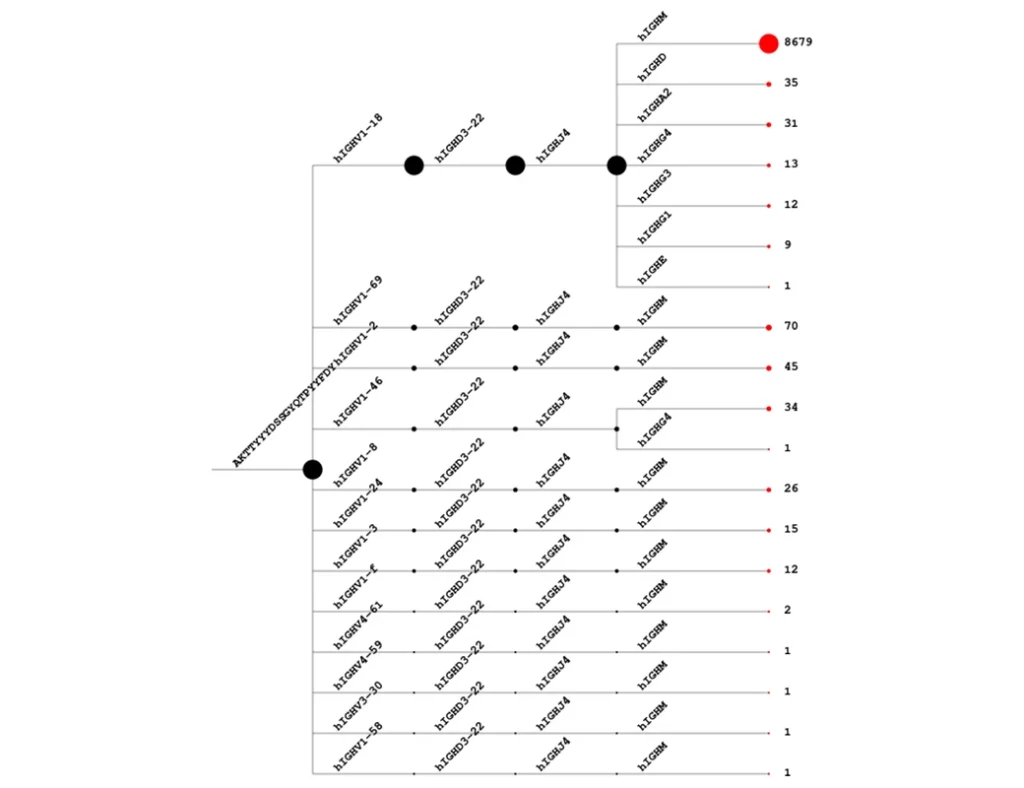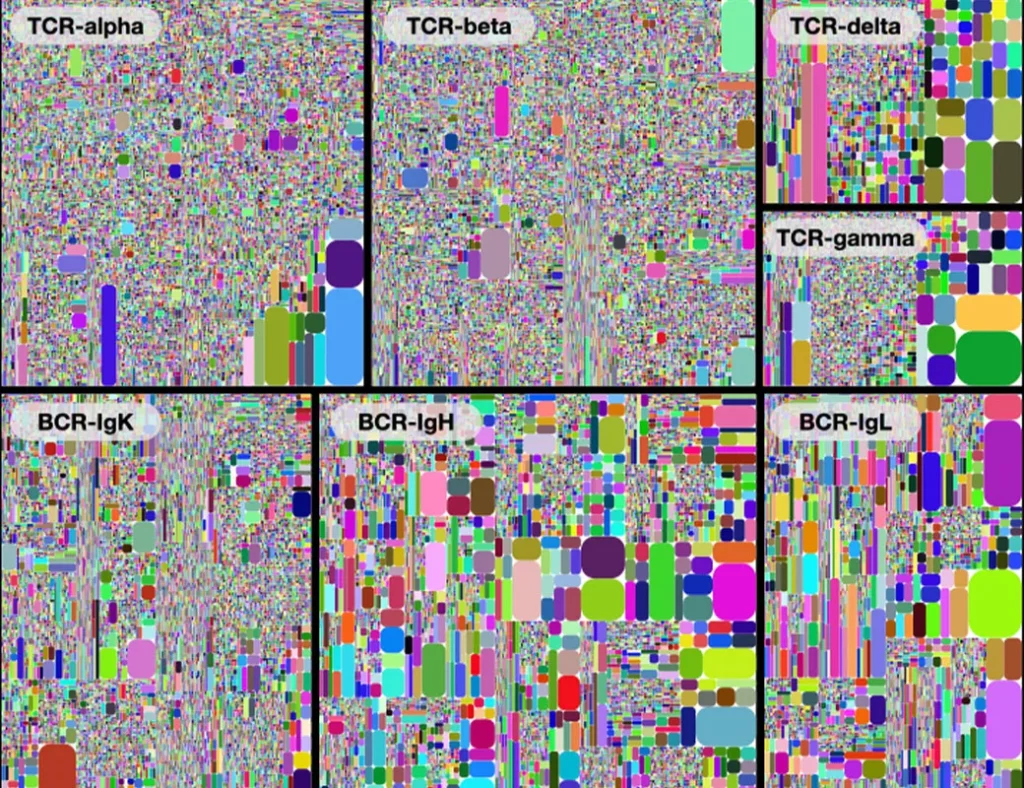Decode complex autoimmune diseases with immune repertoire profiling
Illuminate biomarker discovery and therapeutic development with multichain immune repertoire analysis
Autoimmune diseases such as Systemic Lupus Erythematosus (SLE), Celiac Disease (CD), and Type 1 Diabetes (T1D) are driven by rare, expanded B and T cell clones that recognize self-antigens. Identifying these expanded clones is crucial for developing autoimmune disease biomarkers and therapeutics.
Read on to learn more about how immune repertoire profiling at bulk or single-cell resolution can help to advance your autoimmune clinical development program.
Gain key insights into the autoimmune disease state
Autoimmune diseases are the third most common cause of chronic illness in the US, and their prevalence is increasing globally. Yet, little is understood about the mechanisms that lead to autoimmunity.
Read this case study to learn how immune repertoire profiling:
- Enables the discovery of new autoimmunity biomarkers.
- Sheds light on the underlying mechanisms contributing to autoimmune diseases like Rheumatoid Arthritis (RA) and SLE.
- Provides diagnostic predictor variables for RA.


Characterize and predict therapeutic response
Autoimmune diseases are complex, multi-factorial, and dynamic. With immune profiling, it is possible to precisely monitor changes in immune cell diversity over time and post-therapy to identify biomarkers, inform clinical study design, and predict therapeutic response.
Read this case study to discover how immune repertoire profiling:
- Enables quantitative and highly reproducible analysis of the full diversity of BCR and TCR repertoires.
- Provides information about RA and SLE patient response to immunosuppressant therapy.
- Contributes insights that may enable personalized medicine interventions for autoimmune disease management.
Partner with us for your next autoimmune clinical research study

Expert support that delivers results
Our expert team provides complete support at all stages of your drug development program.

Unmatched immune repertoire profiling experience
Data from our bulk and single-cell immune repertoire profiling services is featured in multiple high-profile scientific publications.
Advance your autoimmune disease development program with RepSeq+ immune repertoire profiling
Bulk Repertoire Profiling
In a single reaction, amplify V(D)Js in B or T cells with RepSeq. Measure all 7 immune chains with RepSeq+
Single Cell Profiling
Capture the paired variable regions of B and T cells with iPair and iPair+
Bioinformatics tools and reports that provide answers, not just data
Making sense of the vast amount of data generated from immune repertoire characterization requires the right analysis tools and expertise. Our bioinformatics platform provides all the analysis features and reports needed to convert data into actionable results.
Diversity tree maps denote the relative frequency of unique V-J-uCDR3s. Each rounded rectangle represents a uCDR3, where the size denotes the relative frequency.
Explore our Learning Center for more resources
Find out more about iRepertoire’s solutions for identifying infection signatures and preventing disease progression.
Ready to get started?
iRepertoire serves as a leader in the field of immune repertoire profiling. We invite you to consult with our team of scientists to discover how our services can accelerate your analysis of immune cell function and diversity.



